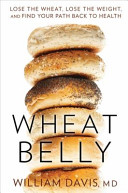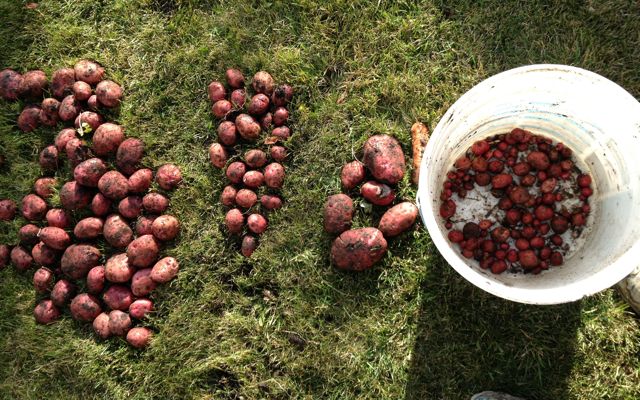 “Did you know that eating two slices of whole wheat bread can increase the blood sugar more than 2 tablespoons of pure sugar can?”
“Did you know that eating two slices of whole wheat bread can increase the blood sugar more than 2 tablespoons of pure sugar can?”
Wheat Belly is a provocative book by William Davis, MD, a preventive cardiologist. He describes the extraordinary results his patients have achieved by giving up wheat and explains complicated science in simple terms, with a generous dollop of humour, making this book an easy read.
Davis begins by exploding the term “beer belly” attributing our record girths to wheat, rather than beer. He explains the long history of wheat, especially the last thirty years when wheat, without any tests of its effects on humans, was hybridized so it barely resembles wheat our ancestors ate.
Davis makes some amazing claims, based on years of research on his patients. He says, “ Wheat, because of its unique blood glucose-increasing effect, makes you age faster…..wheat accelerates the age at which you develop signs of skin aging, kidney dysfunction, dementia, atherosclerosis and arthritis.” He proposes, therefore, that going wheat-free is anti-aging.
He claims whole grains, including and especially wheat, mess with the brain, causing dementia and physical brain damage in many people. He explains how wheat wrecks havoc with our immune systems.
Dr. Davis writes about the pervasiveness of grains in our diets. He points out that several aisles in the supermarket are devoted to grain products. He reveals the power of the companies that manufacture and promote grain products and their profit potential.
My favourite quote: “One thing is clear: There is no nutritional deficiency that develops when you stop consuming wheat and other processed foods.”
The food industry and its cohorts (USDA, American Heart Association, American Diabetes Association, etc.) suggest that grains are somehow necessary for health. Not true. For example, we don’t need grain to access B vitamins (added to baked products) because they are ample in meats, vegetables and nuts.
Davis claims that eliminating wheat makes it easier for people to fast, the ability of which is natural. When people eat wheat they need to eat every few hours due to their ride on the glucose rollercoaster and other factors. Eliminating wheat may be inconvenient but it is not unhealthy.
I have been virtually wheat-free since 2005 and my own experience is remarkable. I lost 30 pounds in two months. Acne breakouts that had plagued me for 30 years magically disappeared, never to return.
I continued to eat substitute grains like rye for a while. I soon noticed I felt better avoiding grains altogether. I do still eat some brown rice, about twice a month. When I want to “cheat” I will have a slice or two of ciabatta bread; I am immediately bloated, gaining five to eight pounds after eating just two slices. This typical outcome makes it easy for me to avoid bread.
Avoiding wheat means foregoing most processed foods, which allows me to avoid other food culprits like hydrogenated oils, salt, sugar and artificial sweeteners, and chemical preservatives.
If you suffer from inexplicable medical conditions or the inability to control your weight, I encourage you to try eliminating wheat from your diet for a month. You may notice no difference, but I believe Dr. Davis’s book provides plenty of evidence that you will most likely feel better.


